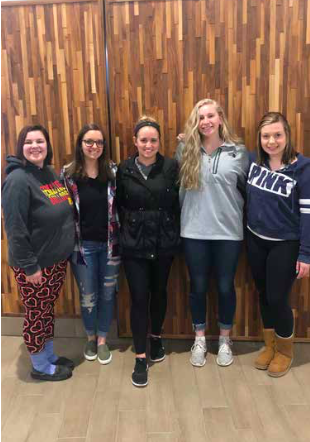
What began as a group assignment for a social work class has now transformed into a lasting community-wide initiative.
Many students are familiar with the Food for Fines program that took place during the first week of February, which allowed campuswide parking tickets cited in January to be paid using non-perishable food items.
The program began as a class assignment where students were asked to think of ways to make Ferris a better place. After handing out surveys, it was discovered that hunger is an issue that needed to be addressed locally.
Ferris social work juniors Cassie Deising and Sarah Sanocki were two members of the group who created Food for Fines. Following the program’s success, they have planned to expand the initiative to include hygiene products and occur again during the fall of 2019.
“Even though our class has ended — the project has ended — this is still going to go on,” Deising said.
Food for Fines’ second round will begin Nov. 4 and end Nov. 9. During this week, food donations may void parking tickets issued between Oct. 14 and Oct. 31.
Students can donate five canned food items to pay off a $10 parking ticket and 10 canned food items to pay off a $20 parking ticket. The donations will benefit Project Starburst.
“We’re giving back to our community, and I think students would really like to not pay $20 for a parking ticket. I think they would appreciate just giving canned goods to other students who need it,” Deising said.
A second drive will begin Feb. 3, 2020. and conclude Feb. 8, 2020. Students will be able to pay parking tickets received during the entire month of January using hygiene products, which will be donated to Wesley House.
Sanocki said Ferris Department of Public Safety (DPS) Chief Bruce Borkovich was helpful with the program’s initial trial run and encouraged the group to expand the program into future semesters.
“We just wanted to give him recognition for helping us out, kind of like a big ‘thank you’ to him,” Sanocki said. “It’s just a huge help that he’s willing to continue it for years to come and that it can be sustainable.”
Borkovich said partnering with the social work students has been a great opportunity to connect with Ferris students and help others.
“I find the current generation of students to really care for others and be very concerned for others,” Borkovich said. “We will be expanding the program to run twice a year. It helps our students, and helps others to have food and other basic items — a win-win situation from our perspective.”
